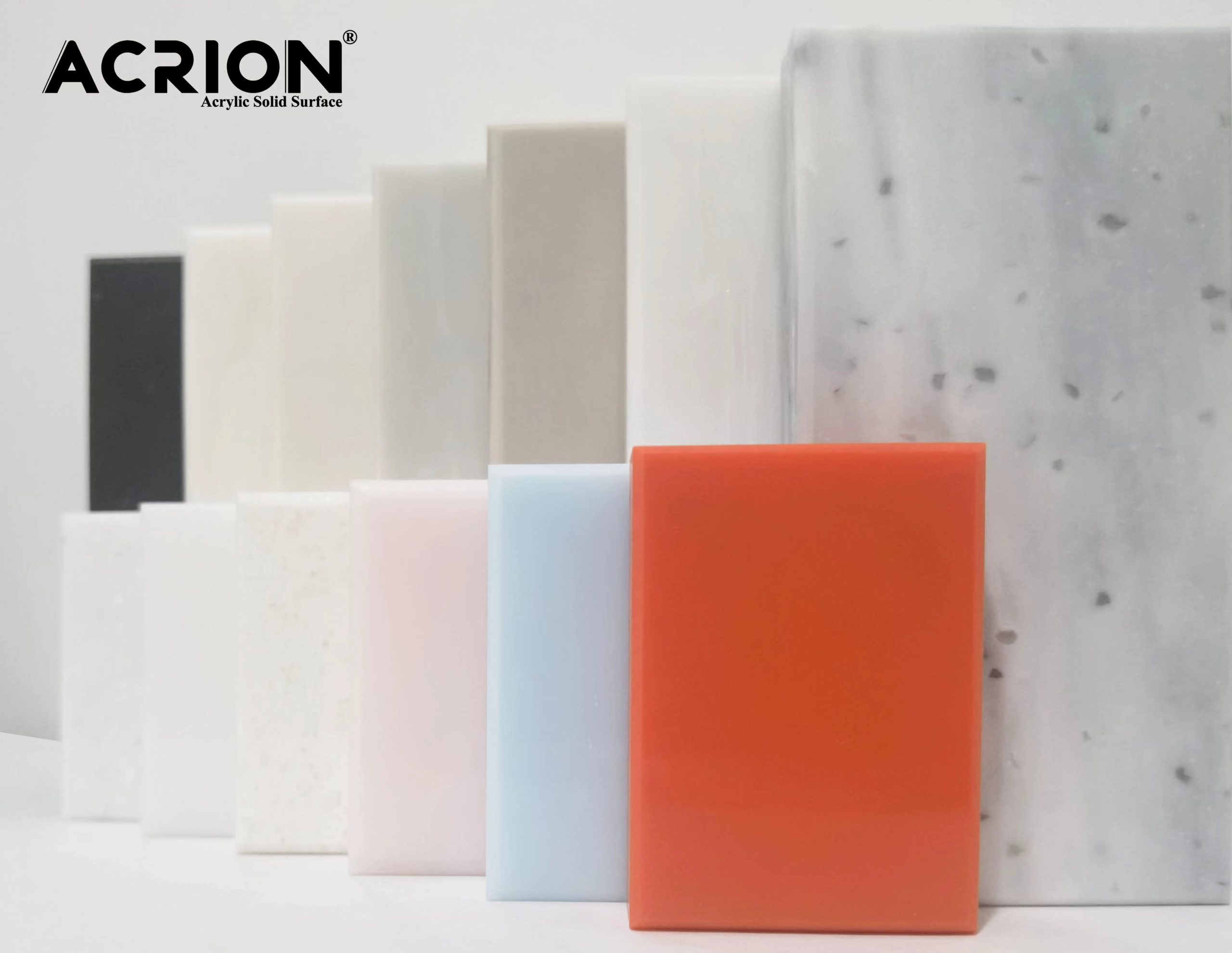Research on the Antibacterial Principle and Effect of Corine Countertops
First, the principle of antibacterial
The antibacterial performance of Kelinai countertops mainly stems from the synergistic effect of its material properties and production processes:
Non-permeable surface structure
Kelinai countertops are made of high-density, pore-free solid surface materials and form a dense surface through a pressing process. This structure effectively blocks the attachment and penetration of microorganisms such as bacteria and molds, physically inhibiting their breeding environment.
The synergistic effect of antibacterial components
The composite structure of natural minerals (such as trihydrated alumina) and polymethyl methacrylate (PMMA) in its material formula endows the surface with antibacterial properties. For example, as tested by ASTM G21-15 standard, after coexisting with molds such as Aspergillus Niger and Aspergillus Brazil for 28 days, the bacterial growth level on the surface was extremely low, confirming its active antibacterial ability.
Seamless splicing technology
The countertop adopts seamless splicing technology, eliminating the gaps and hygiene dead corners of traditional countertops, avoiding water accumulation and dirt residue, and thus blocking the breeding ground for bacteria.
Second, antibacterial effect
Laboratory data support
Third-party testing shows that Kelinai countertops can significantly reduce the growth rate of mold and bacteria in damp environments such as bathrooms and kitchens. For instance, its antibacterial performance is enhanced by more than 50% compared to ordinary artificial stone, and its surface can still remain clean after long-term use.
Practical application verification
User feedback and long-term usage cases show that in scenarios such as kitchens (with grease and food residues) and bathrooms (with water stains and cosmetic residues), the surface of Kelinai countertops has no odor or mold spots after cleaning. Moreover, minor scratches can be repaired by sanding, preventing the accumulation of bacteria.
Comparative advantage
Compared with domestic artificial stone, the antibacterial performance of Kelinai is more stable. For instance, domestic materials, due to their relatively low molecular bond energy, are prone to yellowing and fading under ultraviolet radiation. However, Kailinai has avoided such issues by optimizing its formula, further extending the durability of its antibacterial function.
Third, comprehensive evaluation
The antibacterial performance of Kelinai countertops combines the dual advantages of physical protection and chemical inhibition. Its non-permeable surface, antibacterial components and seamless design jointly form a long-lasting antibacterial system. The dual verification of laboratory data and practical application makes it the preferred material for countertops in damp environments such as kitchens and bathrooms. Despite its high price, it has low maintenance costs, a long service life and outstanding overall cost performance.
